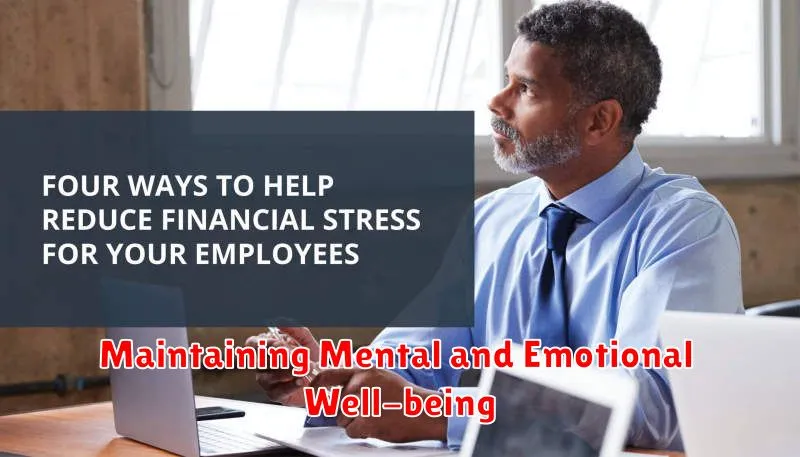Life is unpredictable, and financial hardship can strike anyone at any time. Whether it’s a job loss, unexpected medical expenses, or a natural disaster, these events can leave you feeling overwhelmed and unsure of how to cope. But fear not, as there are steps you can take to prepare for financial hardship and safeguard your future. By implementing a proactive approach, you can build a strong foundation and minimize the impact of unforeseen circumstances.
This guide will equip you with practical strategies and tools to navigate financial challenges head-on. From building an emergency fund to understanding your financial situation, we’ll explore essential steps to empower you to weather any storm. By taking proactive steps, you can gain peace of mind and feel confident knowing that you’re prepared for whatever life throws your way.
Understanding Financial Hardships
Financial hardships can arise from unexpected events, making it crucial to understand their nature. These events can be categorized into two main types: sudden events and gradual events.
Sudden events are unexpected and often out of your control. Examples include job loss, medical emergencies, natural disasters, or accidents. These events can cause significant financial strain as you may face a loss of income or unexpected expenses.
Gradual events are more subtle and can develop over time. These include circumstances such as a decrease in income, rising expenses, or the accumulation of debt. While these events may not seem as immediate as sudden events, they can lead to financial hardships if not managed proactively.
It’s important to acknowledge that financial hardships can have a significant impact on your well-being, creating stress, anxiety, and even affecting your relationships. Understanding the various types of financial hardships helps you prepare for them and mitigate their effects.
Types of Financial Emergencies
Financial emergencies can come in many forms, from sudden medical bills to unexpected job losses. Recognizing the types of emergencies you could face can help you plan for them. Here are some common financial emergencies:
Job Loss: Losing your job can be a major financial setback, leaving you with limited income to cover your expenses. This can be a result of downsizing, layoffs, or other factors.
Medical Expenses: Unforeseen medical bills can quickly drain your savings. This could include a serious illness, accident, or unexpected pregnancy.
Home Repairs: Major repairs on your home can be costly, especially if you have to pay for everything out-of-pocket. Examples include a leaking roof, burst pipes, or a failing HVAC system.
Car Trouble: Major car repairs or replacements can be a significant financial burden. This might include engine problems, accidents, or a total breakdown.
Natural Disasters: Floods, earthquakes, wildfires, and other natural disasters can cause substantial financial damage to your home, car, and other belongings.
Family Emergencies: Unexpected travel for a family member’s illness, a funeral, or other unforeseen events can also lead to financial stress.
Building an Emergency Fund
An emergency fund is a crucial component of financial preparedness. It acts as a safety net to cushion you against unexpected financial hardships. This fund should hold enough money to cover your essential living expenses for a predetermined period, typically three to six months. It’s a dedicated pool of money that you shouldn’t touch unless you face an unexpected emergency.
To build an emergency fund, it’s essential to prioritize saving. Start by setting a realistic savings goal, considering your current income and expenses. Even small, consistent contributions can make a significant difference over time. Consider automating your savings by setting up regular transfers from your checking account to your savings account.
Saving for an emergency fund might seem daunting, but remember, it’s an investment in your financial well-being. It provides peace of mind and empowers you to navigate financial challenges without resorting to risky measures like borrowing at high interest rates or depleting your long-term savings.
Creating a Realistic Budget
One of the most crucial steps to prepare for financial hardships is creating a realistic budget. A budget helps you track your income and expenses, identify areas where you can save, and allocate funds for emergencies. It’s essential to be honest about your spending habits and prioritize your needs over wants. Here are some tips to help you create a realistic budget:
Track your expenses: For a month or two, record every penny you spend. Use a budgeting app, spreadsheet, or even a notebook. This will give you a clear picture of where your money goes.
Categorize your expenses: Once you have a record of your expenses, categorize them into different groups, such as housing, food, transportation, entertainment, and debt payments. This will help you see where you are spending the most.
Set financial goals: Set specific financial goals, such as paying off debt, saving for retirement, or buying a house. These goals will help you stay motivated and on track with your budget.
Prioritize your needs: Differentiate between your needs and wants. Focus on allocating more money towards essential needs like housing, food, utilities, and healthcare. Try to cut back on discretionary spending, such as entertainment, eating out, and subscriptions.
Allocate funds for emergencies: It is critical to have an emergency fund to cover unexpected expenses, like medical bills or car repairs. Aim to save 3-6 months’ worth of living expenses in a separate savings account.
Review and adjust your budget regularly: Life is unpredictable, and your financial situation may change. It’s essential to review your budget regularly and adjust it as needed. You may find areas where you can save more or areas where you need to increase spending.
Creating a realistic budget is a proactive step towards financial security. By tracking your expenses, setting financial goals, and allocating funds for emergencies, you can prepare yourself for financial hardships and navigate unexpected challenges with confidence.
Reducing Unnecessary Expenses
In times of financial hardship, it is essential to take a hard look at your spending habits and identify areas where you can cut back. Reducing unnecessary expenses can significantly improve your financial situation and provide you with a safety net during challenging times. Here are some tips to help you trim your budget and free up valuable resources:
Analyze Your Spending: Start by tracking your expenses for a month to understand where your money is going. Use a budgeting app, spreadsheet, or simply a notebook to record every purchase. This will provide you with a clear picture of your spending patterns and identify areas where you can make cuts.
Cut Subscription Services: Many people subscribe to various services like streaming platforms, gym memberships, or online subscriptions that they don’t use frequently. Evaluate these subscriptions and cancel those you rarely use. This can free up a considerable amount of money over time.
Shop Around for Better Rates: Review your insurance premiums, mobile phone plans, and other recurring bills. You might find better rates or packages with other providers. Don’t be afraid to negotiate with your current providers to secure a more favorable deal.
Reduce Food Waste: Meal planning and grocery shopping strategically can significantly reduce food waste and save money. Create shopping lists based on your meal plans, avoid impulse buys, and consider freezing leftovers to minimize waste. This will help you eat healthier and save money on groceries.
Practice DIY Solutions: Instead of hiring professionals for minor repairs or tasks around your home, explore DIY solutions. There are countless resources available online and at your local library that can guide you through simple repairs and projects. This can save you a significant amount on labor costs.
Embrace a Minimalist Lifestyle: Minimalism is more than just decluttering; it’s about focusing on what truly matters in life. By simplifying your possessions and prioritizing experiences over material goods, you can reduce your spending and free up valuable resources. This can lead to a more fulfilling and financially sustainable lifestyle.
Make Small Changes: Don’t feel overwhelmed by the thought of making drastic cuts. Start with small changes like bringing your lunch to work, brewing coffee at home, or cutting down on unnecessary shopping trips. These small adjustments can add up to significant savings over time.
By implementing these tips, you can reduce unnecessary expenses, improve your financial well-being, and create a more secure future for yourself.
Exploring Additional Income Streams
Financial hardships can strike unexpectedly. It’s crucial to prepare for these unexpected events and build a strong safety net. One of the most effective ways to do this is by exploring additional income streams.
Having multiple sources of income can provide a crucial buffer during challenging times. You can mitigate the impact of job loss, medical emergencies, or other unexpected financial burdens. This allows you to maintain a stable financial footing and prevent your hard-earned savings from being depleted quickly.
There are numerous avenues to explore for extra income:
- Freelancing: Offer your skills and expertise in areas like writing, graphic design, web development, or virtual assistance.
- Online Teaching: Share your knowledge and experience by teaching online courses or tutoring.
- Renting out a spare room or property: Generate passive income by renting out your spare room or entire property on short-term rental platforms.
- Side hustles: Engage in flexible part-time jobs such as food delivery, ride-sharing, or pet sitting.
- Investing: Diversify your investments to potentially generate passive income from dividends or interest.
The key to finding the right additional income streams is to identify your strengths, interests, and available time. By taking proactive steps to explore these options, you can build a resilient financial foundation to navigate life’s uncertainties.
Managing Debt Effectively
When facing financial hardships, it’s crucial to manage your debt effectively to minimize its impact. Here are some key strategies:
Create a Budget: Track your income and expenses to identify areas where you can cut back. A detailed budget helps you understand your financial situation and prioritize debt repayment.
Prioritize High-Interest Debt: Focus on paying down debt with the highest interest rates first, such as credit card debt. This minimizes the amount of interest you accrue and accelerates your progress toward debt freedom.
Negotiate with Creditors: Reach out to your creditors to explore options like lower interest rates, reduced monthly payments, or a temporary hardship plan. Being proactive can help you avoid late fees and negative impacts on your credit score.
Consider Debt Consolidation: Consolidating multiple debts into a single loan with a lower interest rate can simplify repayment and potentially save you money on interest charges.
Seek Professional Help: If you’re struggling to manage your debt, consider seeking advice from a financial advisor or credit counseling agency. These professionals can provide personalized guidance and support to create a debt management plan tailored to your specific circumstances.
Protecting Your Credit Score
During tough financial times, protecting your credit score is crucial. A good credit score can unlock lower interest rates on loans and credit cards, making it easier to manage your finances. Here are some key steps to safeguard your credit score:
Pay your bills on time: Late payments significantly damage your credit score. Set reminders, automate payments, or consider using a budgeting app to stay organized and avoid missed deadlines.
Keep your credit utilization low: Your credit utilization ratio is the percentage of your available credit that you’re using. Aim to keep it below 30% to maintain a healthy credit score. Pay down balances and avoid opening new credit cards to keep your utilization low.
Monitor your credit report regularly: Check your credit report for any errors or unauthorized activity. You can get free copies from all three major credit bureaus (Equifax, Experian, and TransUnion) annually at AnnualCreditReport.com.
Avoid closing old accounts: Closing old accounts can negatively impact your credit score, even if you’re no longer using them. Keep them open to increase your credit history length. However, it’s wise to close unused credit cards with high annual fees.
Consider a secured credit card: If you have limited credit history, a secured credit card can help you build credit. These cards require a security deposit that acts as collateral. Responsible use of a secured credit card can help improve your credit score over time.
Protecting your credit score is an essential aspect of preparing for financial hardship. By following these tips, you can improve your financial resilience and access the best financial products and services, even in difficult times.
Seeking Financial Advice

When preparing for financial hardships, seeking advice from a financial professional can be invaluable. A financial advisor can help you create a personalized plan to manage your finances effectively, even during challenging times. They can provide insights on budgeting, saving, investing, and managing debt. This professional guidance can help you make informed decisions and navigate through unforeseen circumstances with greater confidence.
Here are some tips for seeking financial advice:
- Do your research: Before choosing an advisor, it’s essential to research different options and understand their qualifications, experience, and fees.
- Consider your financial goals: Define your financial objectives clearly so that the advisor can create a plan that aligns with your needs and aspirations.
- Ask questions: Don’t hesitate to ask questions to clarify any doubts you may have. A good advisor will be patient and transparent in their communication.
- Get recommendations: Ask for recommendations from trusted sources, such as friends, family, or colleagues, who have previously worked with a financial advisor.
- Check their credentials: Ensure that the advisor holds the necessary licenses and certifications to provide financial advice.
Remember, a financial advisor can be a valuable resource in your journey to prepare for financial hardships. Their expert guidance can help you make informed decisions and build a strong financial foundation for the future.
Government Assistance Programs
When facing financial hardships, knowing about available government assistance programs can be a lifeline. These programs offer support in various forms, including financial aid, housing assistance, food stamps, and healthcare subsidies. The government recognizes the challenges people face and has created resources to help them get back on their feet.
To access these programs, you’ll need to meet specific eligibility criteria. These criteria typically involve factors like income level, family size, and residency status. Each program has its own set of requirements, so it’s essential to research the programs you’re interested in and gather the necessary documentation.
Here are some common types of government assistance programs:
- Temporary Assistance for Needy Families (TANF): This program provides financial assistance and support services to families with children in need.
- Supplemental Nutrition Assistance Program (SNAP): Commonly known as food stamps, SNAP helps low-income individuals and families purchase food.
- Housing Choice Voucher Program: This program helps low-income families, the elderly, and people with disabilities afford housing.
- Medicaid: Medicaid provides health insurance coverage to low-income individuals and families.
- Earned Income Tax Credit (EITC): This tax credit provides a refundable credit to low- to moderate-income working individuals and families.
It’s important to note that government assistance programs are often subject to changes in eligibility requirements and funding. Staying updated on the latest information and exploring different resources is crucial. You can consult with local social service agencies, government websites, or community organizations for guidance and support.
Negotiating with Creditors

Negotiating with creditors can be a daunting task, but it can be a crucial step in managing financial hardship. It’s essential to understand that creditors are businesses, and their primary goal is to get their money back. By approaching them with a plan and demonstrating your commitment to repayment, you can potentially achieve favorable terms.
Start by documenting your situation. Gather information about your income, expenses, and debt obligations. This will help you create a realistic budget and understand your financial constraints. Once you have a clear picture of your situation, you can begin communicating with your creditors.
Be proactive and reach out to your creditors. Don’t wait for them to contact you. Call or write them a letter outlining your situation and proposing a solution. Be honest about your financial struggles, but avoid making excuses. Express your willingness to work with them towards a solution.
Negotiate a payment plan. If you’re unable to make your full payments, propose a temporary reduction or a payment plan that you can afford. Be prepared to offer something in return, such as a lump-sum payment or a higher interest rate.
Be prepared for a “no.” Not all creditors will be willing to negotiate. If your request is denied, don’t give up. Try again later or explore other options like debt consolidation or bankruptcy.
Get everything in writing. Once you reach an agreement, make sure to get it in writing. This will protect you from any future misunderstandings.
Remember, negotiating with creditors requires patience and perseverance. It may take time to reach a mutually beneficial agreement, but it’s important to keep working toward a solution.
Accessing Community Resources
When facing financial hardships, it’s essential to explore available community resources that can offer support and assistance. These resources can provide financial aid, food security, housing assistance, and other vital services. Reach out to local non-profit organizations, community centers, and government agencies to inquire about available programs.
Food banks offer free groceries to individuals and families in need. Housing assistance programs can provide temporary or permanent housing options for those facing eviction or homelessness. Financial counseling services can help you develop a budget, manage debt, and explore options for financial assistance.
Utilizing these community resources can significantly alleviate financial stress and provide much-needed support during challenging times. Don’t hesitate to seek assistance, as it’s a sign of strength and resourcefulness.
Maintaining Mental and Emotional Well-being

Financial hardships can be incredibly stressful and emotionally draining. It’s important to prioritize your mental and emotional well-being during such times to navigate the challenges effectively. Here are some tips:
Acknowledge and Validate Your Feelings: Don’t suppress or ignore your emotions. Allow yourself to feel the stress, anxiety, or sadness that comes with financial difficulties. Talk to someone you trust about your feelings, whether it’s a friend, family member, or therapist.
Practice Self-Care: Engage in activities that help you relax and de-stress. This could include exercise, meditation, spending time in nature, reading, or pursuing hobbies. Prioritizing self-care can help you maintain a sense of balance and resilience.
Set Realistic Expectations: Financial hardships can sometimes feel overwhelming. Break down your goals into smaller, more manageable steps. Focus on what you can control and celebrate small victories along the way.
Seek Support: Don’t hesitate to reach out for help if you need it. There are numerous resources available, including financial counselors, support groups, and community organizations that can offer guidance and assistance.
Practice Gratitude: Despite the challenges, take time to reflect on the positive aspects of your life. Focusing on gratitude can shift your perspective and help you maintain a sense of hope and optimism.
Remember, your mental and emotional well-being is crucial during financial hardships. By taking care of yourself, you can navigate these challenges with greater strength and resilience.
Insurance Coverage Review

An important step in preparing for financial hardships is reviewing your insurance coverage. Make sure you have adequate coverage in key areas such as health insurance, life insurance, disability insurance, and property insurance. You should also consider the level of coverage you have and whether it meets your current needs. For example, if you have a family or dependents, you might need more life insurance than someone who is single.
Take the time to understand your policy’s terms and conditions, including deductibles, co-pays, and limitations. If you’re unsure about anything, don’t hesitate to contact your insurance agent or company for clarification. You can also explore different insurance plans to see if there are options that provide better coverage or lower premiums.
Having adequate insurance coverage can provide a safety net in case of unexpected events, helping you manage your finances during challenging times. Regular review and adjustments ensure your policies remain relevant to your current situation and offer the protection you need.

